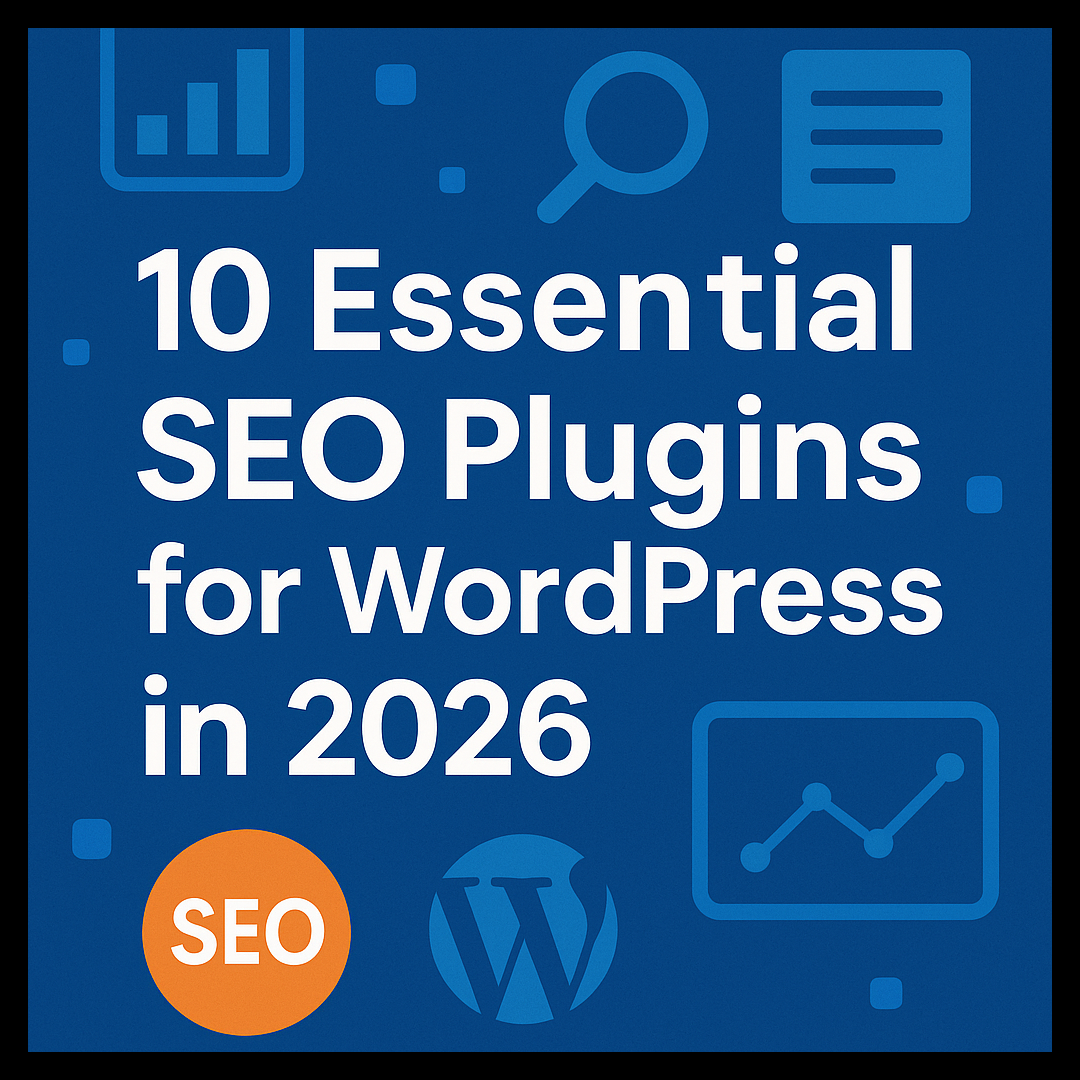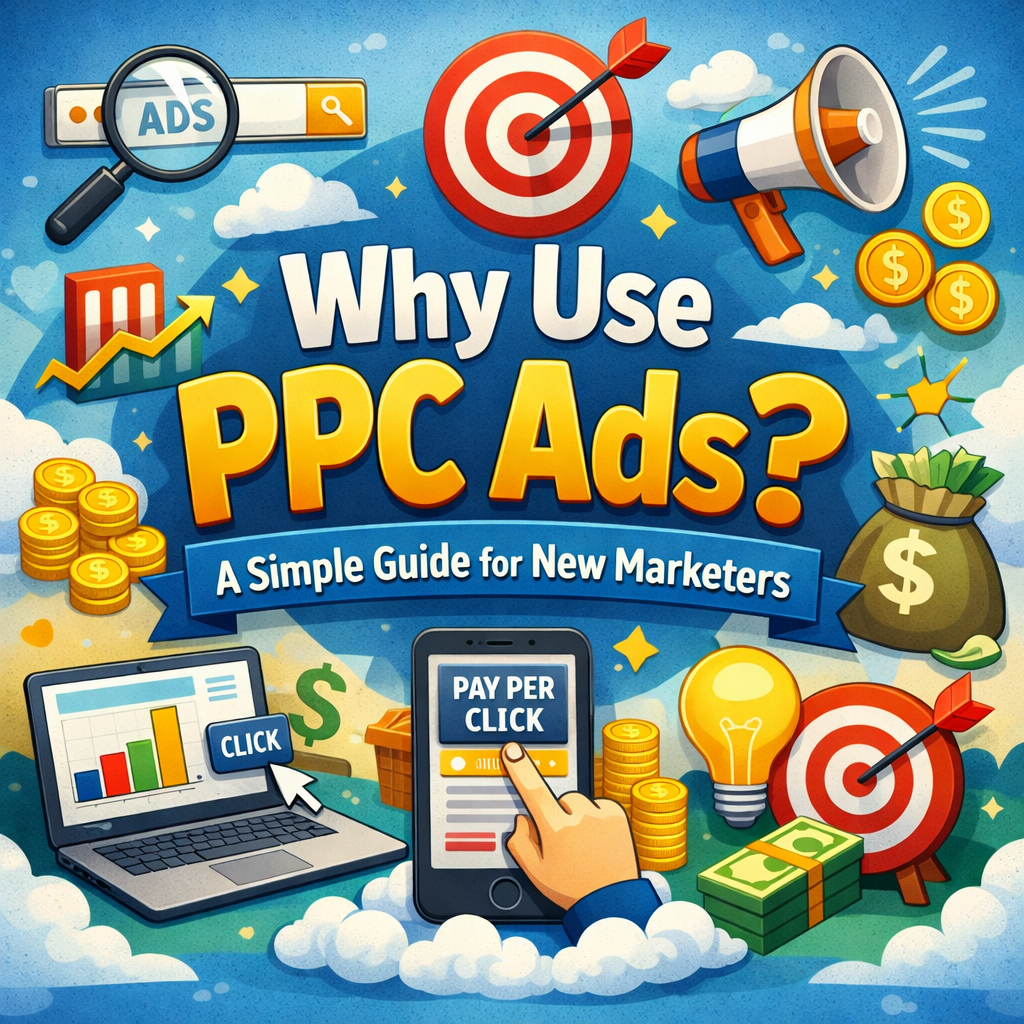In 2025, search engine optimization (SEO) remains the cornerstone of online success for WordPress websites. With evolving Google AI algorithms, voice search growth, and the rising importance of Core Web Vitals, choosing the right SEO tools is more critical than ever. Thankfully, WordPress continues to offer a wide range of powerful plugins that simplify everything from keyword optimization and meta management to structured data, schema, and backlink insights.
In this guide, we’ve curated the 10 essential SEO plugins for WordPress in 2026 — each designed to help your site rank higher, load faster, and attract more qualified traffic. Whether you’re a blogger, business owner, or digital marketer, these plugins will give you a competitive edge in visibility, performance, and search rankings.
Here’s a detailed article on 10 Essential SEO Plugins for WordPress in 2026, including each plugin’s name, standout features, pros & cons — tailored for your design-and-detail-driven approach to content marketing.
1. Yoast SEO
Features:
- On-page content analysis: helps you optimise titles, meta descriptions, and readability.
- XML sitemap generation and automatic updates.
- Schema (structured data) support and snippet preview so you can see how your page appears in search results.
Pros:
- Very widely used — strong community, lots of tutorials.
- Beginner-friendly UI and setup wizard.
- Solid track record: “trusted veteran” in WordPress SEO.
Cons:
- Some advanced features are restricted to the premium version.
- Performance: Because of many features, it can add overhead if not configured carefully.
- With many alternatives now, some feel it’s less cutting-edge. (Some comment, “I dislike Yoast…the new blades offer more”.)
2. Rank Math
Features:
- Built-in Google Search Console integration: keyword tracking, click-through rates inside the WordPress dashboard.
- Supports multiple types of structured data (Schema) out of the box.
- Setup wizard and modular feature toggles: you can enable only what you need to keep performance tight.
Pros:
- Very strong free version; many premium features from other tools are included.
- Very good value and future-oriented (2026-proof) plugin.
- Good for multi-site setups or agencies due to its flexibility.
Cons:
- Because it’s feature-rich, there’s a slightly steeper learning curve for non-SEO-savvy users.
- Frequent updates and feature additions mean you need to stay up to date.
- Migration from another SEO plugin may require careful handling (metadata, schema, etc).
3. All in One SEO (AIOSEO)
Features:
- Full website audit tools: check meta tags, sitemaps, redirects, schema.
- WooCommerce support is built in for e-commerce SEO.
- Redirect manager, broken link detection (in higher tiers).
Pros:
- Very balanced between ease-of-use and power.
- Strong free version + scalable premium levels.
- Good choice when you want one plugin to cover most SEO needs.
Cons:
- Might be more than needed if you want lightweight/basic SEO.
- Some users feel the UI could be simplified further for novices.
- Premium tiers can get pricey for multiple sites.
4. SEOPress
Features:
- Meta titles/descriptions, Open Graph & Twitter cards, XML/HTML sitemaps built-in.
- Pro: AI titles/meta, full schema types, site audit tools, backlink/keyword tracking.
- Migration tools to move from other SEO plugins smoothly.
Pros:
- Lightweight performance with a capable feature set.
- No ads; privacy-forward free version.
- Good for developers/agencies (white-label).
Cons:
- Fewer “household name” tutorials than Yoast/Rank Math.
- Some features are only in Pro.
- Less “plug-and-play” for absolute beginners.
5. Schema Pro
Features:
- Focused on rich snippets / structured data (schema.org types).
- Works alongside major SEO plugins.
Pros:
- Great when rich results matter (local, recipes, reviews, ecommerce).
- Keeps the main SEO plugin lean.
- Can boost CTR with enhanced SERP display.
Cons:
- Not a full SEO plugin — base plugin still needed.
- Overkill if a minimal schema is needed.
- Often premium-only.
6. Broken Link Checker
Features:
- Monitors your site for broken/internal/external links.
- Edit, unlink, or redirect broken links from the plugin.
Pros:
- Great for SEO hygiene and UX.
- Saves manual link auditing time.
- Free/low-cost options.
Cons:
- Resource usage on very large sites.
- Housekeeping tool (doesn’t replace on-page optimization).
- Still needs human action to fix links.
7. WP Meta SEO
Features:
- Bulk meta editing for many posts/pages.
- Optimizes meta/social sharing for large content libraries.
Pros:
- Excellent for content-heavy sites.
- Speeds up repetitive meta work, ensures consistency.
Cons:
- Not a complete SEO solution — needs base plugin.
- Bulk changes can hurt SEO if not reviewed.
- Some features may be premium-only.
8. The SEO Framework
Features:
- Lightweight, minimal bloat; fast performance.
- Automatic meta, canonicals, sitemaps.
Pros:
- Ideal when every millisecond counts.
- Minimal UI and quick learning curve.
Cons:
- Fewer advanced features than all-in-one suites.
- May need add-ons/manual setup for advanced schema.
- Smaller community/tutorial base.
9. Ubersuggest WP Plugin (or similar)
Features:
- Brings keyword research/competitor insights into the WP dashboard.
- Bridges tool data with content implementation.
Pros:
- Great for content clusters & topic planning.
- Keeps workflow inside WordPress.
Cons:
- It might require a paid tool for full features.
- Not a replacement for a base SEO plugin.
10. DiagnoSEO
Features:
- Lightweight, Core Web Vitals–aware, minimal overhead.
- All-in-one configuration with audit & schema focus.
Pros:
- Great for speed- and performance-first builds.
- Simplifies new site SEO setup.
- Keeps plugin stack lean.
Cons:
- Newer entrant; fewer case studies.
- May lack certain premium integrations.
- Overlap with existing tools if you already have a stack.
Read more: How to Choose Between Hostripples and A2 Hosting
Choosing the Right Plugin for 2026
- If you want one plugin to rule them all, Rank Math or AIOSEO.
- Performance/speed priority: The SEO Framework or SEOPress.
- Heavy content libraries: add WP Meta SEO or Broken Link Checker.
- Rich snippets/schema focus: Schema Pro.
- Pick one primary SEO plugin — avoid running multiple full-stack SEO plugins simultaneously.
- Keep everything updated; review periodically as AI search & Core Web Vitals evolve.
Conclusion
SEO in 2026 is not just about keywords anymore — it’s about speed, user experience, structured data, mobile-first, and AI/voice readiness. A good SEO plugin is a foundational piece — but it must align with your content workflows, performance goals, and brand standards.
Pick the plugin (or plugin-stack) that fits your workflow and brand’s architecture, then invest the time to configure it properly: tailored meta-templates, schema types relevant to your business, site-audit routines, content-optimization workflows, internal linking, and performance monitoring.



Leave a Reply
You must be logged in to post a comment.